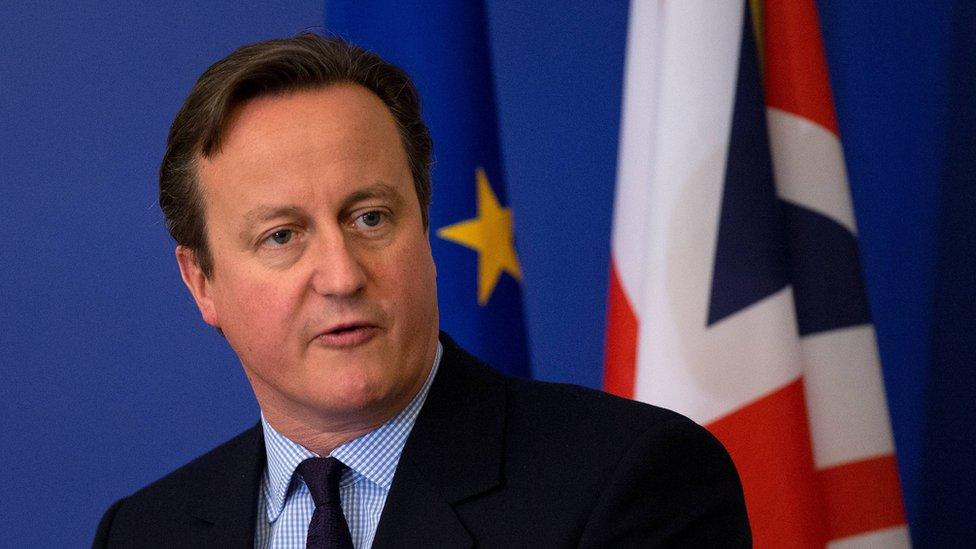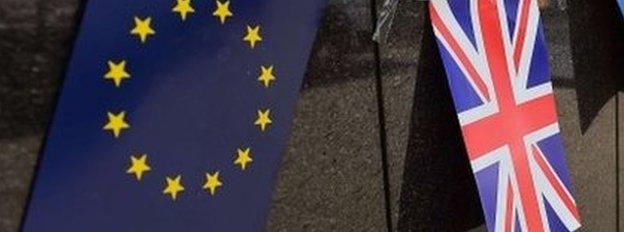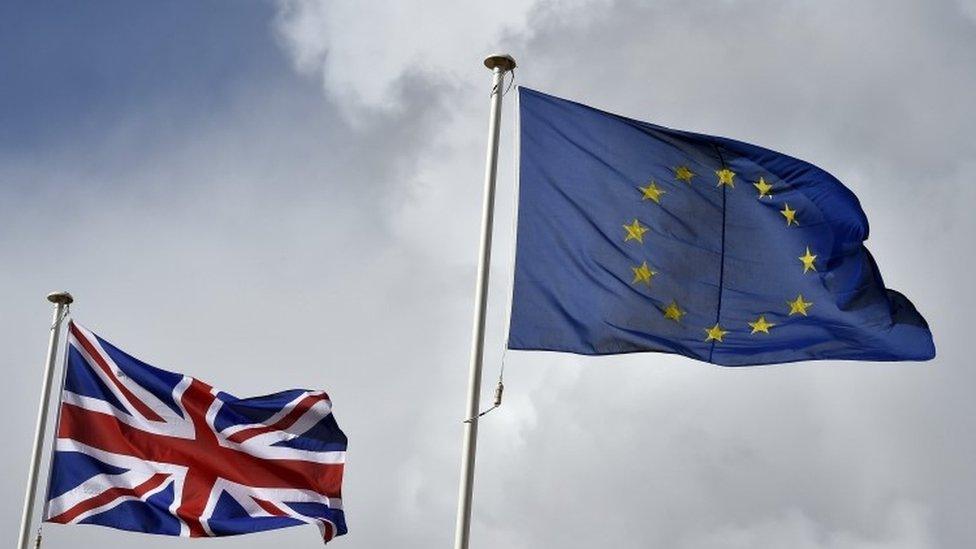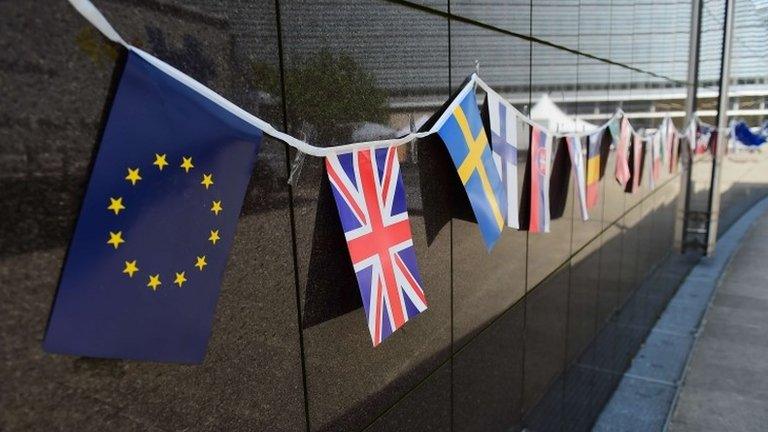EU referendum: Reforms need treaty change, MPs say
- Published

David Cameron cannot deliver the EU reforms he wants without treaty changes - and he will not get them before before a referendum, MPs have warned.
Sir Bill Cash, chairman of the EU scrutiny committee, said the PM was in a "very difficult situation".
No 10 agreed that the "legally binding, irreversible" changes being demanded by Mr Cameron will need treaty changes.
But a spokesman said this did not need to happen before a referendum, which must be held by 2018.
"The prime minister has been clear that the reforms we are seeking will need to be legally binding and irreversible, and that some will require treaty change," the prime minister's spokesman said.
"As the prime minister has said, we must have agreement to such treaty change before the referendum. Ultimately, it is for the British people to decide whether or not the UK remains in the European Union."
Sir Bill Cash MP sets out why he believes UK-EU negotiations require treaty change
It is understood the government could seek a binding agreement with the EU, with treaty change to follow.
Mr Cameron is pushing to stop new arrivals claiming in-work benefits for four years, among other things.
This is thought to require treaty change but is being met with resistance from other EU leaders.
Mr Cameron will continue talks at a summit on Thursday, which European Council President Donald Tusk says should "pave the way" for an agreement in February.
Veteran Eurosceptic Sir Bill Cash, who chairs the cross-party EU scrutiny committee, said "treaty change is not on offer" but it was "absolutely essential we get treaty change if we are to actually achieve the objectives the prime minister has set out".
He added: "Voters in the forthcoming referendum must be aware of this when they make their choice as to whether to vote to remain in the EU or to leave the EU."

Analysis
By Laura Kuenssberg, BBC political editor
The prime minister has already acknowledged, very publicly in a speech last month, that restricting benefits for Europeans working here, whether they be Poles, Italians, Spaniards, Romanians or any others, will be a difficult political sell for other countries, to put it mildly.
The wider point about this particular plan is that it challenges a fundamental principle of the EU - that all of its citizens are equal, and entitled in law, to the same treatment and protections.
And sources familiar with what's going on suggest the problem may not just between the UK and many other countries in the EU on this issue, but there is also unease in the government in Westminster.

Mr Cameron has set out his demands for EU reform, focusing on four areas:
Protection of the single market for Britain and other non-euro countries
Boosting competitiveness by setting a target for the reduction of the "burden" of red tape
Exempting Britain from "ever-closer union" and bolstering national parliaments
Restricting EU migrants' access to in-work benefits such as tax credits
The scrutiny committee said changing the relationship between the eurozone and non-eurozone countries was the "most substantial" area being discussed by Mr Cameron and the other EU leaders - and this "absolutely requires the security of treaty amendment to address it".
The committee said another item on Mr Cameron's shopping list, improving industrial competitiveness, was "already being addressed," and his pledge to exempt to the UK from "ever-closer union" among EU nations was not "legally significant".
Latest polls
The report also poured cold water on Mr Cameron's claim that his benefit restrictions would reduce immigration, saying it would not have "a large-scale effect".
The committee also criticised the "reactive and opaque" handling of the renegotiation and warned "presenting Parliament with a 'fait accompli' could give rise to legitimate concerns about the accountability and transparency of both the process itself, and its outcome".
Meanwhile, two polls suggest UK voters are almost equally split on whether or not to quit the EU.
An ICM poll for the Vote Leave campaign found that 42% of the 2,053 surveyed would vote to remain a member, 41% would vote to leave, and 17% were undecided.
A poll by Survation for the Alliance for Direct Democracy in Europe, a European political party including UKIP, found that 42% of the more than 10,000 asked wanted to leave the EU, 40% wanted to remain, and 18% were undecided.

UK's EU referendum in-depth

- Published8 December 2015
- Published14 December 2015

- Published30 December 2020

- Published17 February 2016
